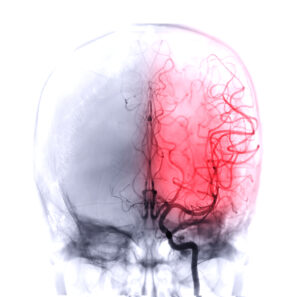As one of the most vital organs in the body, any damage to the brain can have life-altering consequences. Traumatic brain injury can vary from mild to completely incapacitating and create a wide range of health and financial problems. This guide will cover the process of making a brain injury claim.
If a brain injury has been caused by a third party, either due to their actions or neglect, a claim for personal injury compensation could be made. This guide will look at some of the circumstances that could lead to a successful compensation claim, as well as how damages for different types of brain injury are calculated.
We will also cover the time limit in which a claim needs to be brought and also the circumstances when a claim can be brought on behalf of a child or on behalf of someone who lacks mental capacity.
The final section focuses on legal representation and how an expert brain injury solicitor from our panel might be able to help start a claim using a type of No Win No Fee contract. If you’d like to learn more about this, please read on or you can:
- Call 0333 000 0729.
- Make an online enquiry.
- Use the live chat box on screen.
Jump To A Section of Our Guide
- What Is A Brain Injury?
- Can I Make A Brain Injury Claim?
- How Do I Make A Brain Injury Claim?
- How Long Do I Have To Claim For A Brain Injury?
- Can I Make A Brain Injury Claim For A Child?
- Can I Claim For Someone Who Has Died Due To A Brain Injury?
- How Much Brain Injury Compensation Could I Receive?
- How Can Our Panel Of No Win No Fee Brain Injury Claim Solicitors Help You?
- More Useful Resources About Claiming For A Personal Injury
What Is A Brain Injury?
The NHS states that a traumatic brain injury (TBI) can be any injury to the head that impacts the brain and can occur in many different ways. Causes can include road traffic accidents, falls, assault and medical negligence. Typical brain injury can cause the following symptoms:
- Concussion and unconsciousness.
- Dizziness and nausea.
- Confusion, disorientation and memory loss.
- Blood clots, seizures and aneurysms.
- Paralysis and impact on speech, sight and hearing.
- Coma and death.
Can I Make A Brain Injury Claim?
A brain injury claim for compensation can be started if you can show that the fault of a third party caused the injuries. In many places, a duty of care applies, which means certain third parties must take steps to avoid causing harm.
The criteria to make a claim for compensation are:
- A duty of care was owed
- This duty was breached
- The breach caused an injury or harm
We will now look at four common types of compensation claims that could include a brain injury.
Road Traffic Accidents
Road users must navigate the roads safely and in a way that prevents harm and damage to themselves and others. To fully comply with their duty of care, they must adhere to the Road Traffic Act 1988 and Highway Code obligations. A breach of this duty could result in the following:
- A drunk driver collides with another motorist, causing severe brain damage in the accident.
- A speeding motorist hits a cyclist as he rounds a corner too fast, veering onto the wrong side of the road. This fractures the cyclist’s skull, causing brain damage.
Accidents At Work
Employers have a duty of care to take practicable and reasonable steps to keep people safe at work. The Health and Safety at Work etc Act 1974 (HASAWA) sets out this duty, and it can require them to assess risks, provide safety equipment, train staff properly and respond to workplace safety concerns. A failure to meet this duty could be:
- An employee is given known faulty equipment to work with (such as a ladder), and they suffer a fall, which causes serious brain injury.
- Inadequate personal protective equipment (PPE) was supplied on a construction site, and an employee suffered a head injury when falling debris hit them.
Accidents in a Public Place
The third parties in control of areas open to the public owe them a duty of care as detailed in the Occupiers’ Liability Act 1957. They must ensure steps are taken to implement the safety measures to ensure visitors are reasonably safe. So here a breach of duty might be:
- When the owners of an old pub fail to indicate a low ceiling beam clearly and a customer hits their head on it.
- A shopping centre fails to clean a spillage from a stair area, and a customer slips, banging their head in the fall.
Medical Negligence
All medical professionals owe a duty of care to their patients. They must meet the minimum accepted standard of care when providing advice or treatment. If they do not meet this standard, then it could be a breach of duty. Some examples could include:
- A patient is not asked about allergies and suffers an allergic reaction during surgery, which causes brain damage.
- Poorly trained or inexperienced midwives fail to recognise the warning signs of a distressed baby during childbirth. This causes a lack of oxygen to the baby, causing brain damage during delivery.
There can be numerous ways in which a duty of care was not met and caused harm. To discuss your particular case or that of your loved one, please reach out to the team. If eligible, a personal injury or medical negligence solicitor from our panel could step in and help make a claim.
How Do I Make A Brain Injury Claim?
To give a personal injury claim its best chance of success you need to draw together as much evidence that proves how a breached duty of care caused the brain injury. To assist with this, we have detailed a (not exhaustive) list of the types of evidence you could use:
- Any workplace or roadside CCTV that captured the accident. Also, any dashcam and helmet cam footage that filmed your accident.
- Photos of visible head injuries and the hazards that created the accident.
- The contact details for anyone who saw what happened. Should you decide to appoint a solicitor, they can approach these people for a supporting statement at a later date.
- A copy of the accident book entry at work.
- Request copies of your medical records, X-rays and brain scans. Also, proof of prescription medications can be proof of harm caused.
Our panel of solicitors can confidently use the evidence you collect and present it as part of the argument for brain injury compensation. Why not take advantage of the free case assessment our advisors offer to see if you or your loved one have a potential claim?
How Long Do I Have To Claim For A Brain Injury?
Personal injury claims for compensation usually need to be started within a three-year period starting from the date of injury according to the Limitation Act 1980. In cases of medical negligence, the time limit may start from the ‘date of knowledge’ when it is realised negligence had occurred.
If someone lacks the mental capacity to bring their own claim, then the time limit does not run. Should they regain capacity, it would start to run from the date they recovered capacity, and they have 3 years to make a claim from that date. If capacity is never recovered, there is no time limit.
The time limit also works differently for children, which we will consider in the next section.
Can I Make A Brain Injury Claim For A Child?
A child cannot start their own claim until they become 18. The three-year time frame then starts from this date, i.e. until their 21st birthday. Alternatively, a litigation friend can bring a claim on behalf of the child before they are 18. A litigation friend is usually a parent or guardian but does not have to be a family member. They will act in the best interests of a child and conduct the claim for them.
Making A Brain Injury Claim On Behalf Of Someone Else
In the most serious of cases, a brain injury can leave someone without the capacity to bring their own case. The Mental Capacity Act 2005 defines a lack of capacity to be when a person is unable to make a decision for themselves in a matter due to a disturbance in the functioning of the mind or brain.
A litigation friend can similarly be used to bring a claim on behalf of someone who lacks capacity and they can make decisions about the case for the injured person whilst keeping their best interests in mind.
If you’d like to discuss the role of litigation friend in more detail, or how to claim on behalf of someone lacking capacity, please contact our advisors on the options above.
Can I Claim For Someone Who Has Died Due To A Brain Injury?
When someone has sadly passed away due to a brain injury, and this was the fault of a third party, their estate can claim for the deceased’s injuries and financial harm. They can also claim on behalf of the dependants. This comes from the Law Reform (Miscellaneous Provisions Act) 1934, and only the estate can make a claim in the first 6 months after death.
The deceased dependants can claim after 6 months under the Fatal Accidents Act 1976 unless the estate claimed for them as outlined above. This is a claim for the impact that the death has had on them.
For further guidance on fatal accident claims, please get in touch.
How Much Brain Injury Compensation Could I Receive?
Brain injury compensation claims that succeed may receive compensation drawn from two areas of loss called general and special damages. General damages affix a monetary value for the person’s physical suffering and pain, as well as any psychological damage the injury caused them.
The groups who calculate general damages often refer to the medical evidence submitted and may also confer with documents like the Judicial College Guidelines (JCG). This publication lists award bracket compensation guidelines for various injuries.
Please note that every personal injury compensation claim differs. So, the amounts shown in our example table below are guideline suggestions only. Also, the first entry does not come from the JCG:
Compensation Guidelines
| Area of Harm | Severity Level | JCG Award Guidelines | Notes |
|---|---|---|---|
| Multiple injuries and Special Damages | Severe | Up to £5 million plus. | Cases where the person suffers more than one type of serious injury and receives awards for lost income, care needs and medical expenses. |
| Brain/Head | (a) Very Severe | £344,150 up to £493,000 | Total dependence on others and no meaningful interaction with environment. |
| (b) Moderately Severe | £267,340 up to £344,150 | Greatly reliant on others with symptoms that can include limb paralysis and impaired intellect. | |
| (c) Moderate (i) | £183,190 up to £267,340 | Impact on the sight and speech with a significantly increased risk of epilepsy. | |
| (c) Moderate (ii) | £110,720 up to £183,190 | Modest intellectual deficit and ability to work removed completely or reduced. | |
| (c) Moderate (iii) | £52,550 up to £110,720 | Impact on memory and concentration with small risk of epilepsy. | |
| (d) Less Severe | £18,700 up to £52,550 | Despite persisting issues with memory, concentration and mood, the person makes a good recovery and can participate in normal life. | |
| (e) Minor | £2,690 up to £15,580 | Award is guided by initial severity and duration of recovery. | |
| (a) Epilepsy | £124,470 up to £183,190 | An established Grand Mal. | |
| (b) Epilepsy | £66,920 up to £160,360 | An established Petit Mal. |
Can I Claim For Financial Losses Caused By A Brain Injury?
Special damages are the head of loss under which the financial consequences of brain injury are dealt with. In cases of serious brain injury where there is a lack of capacity, the financial losses can form the bulk of the award.
A common item of financial loss is loss of earnings. How much compensation could be recovered will depend on several factors, such as the age of the person injured, what their employment prospects were before the injury and if there is any capacity to work at all after the injury.
There are a range of other financial costs that could be included in special damages, depending on the severity of the injury.
- The cost of professional care for personal and domestic needs (in some cases, this could be around the clock care).
- Rehabilitation costs such a speech and language therapy, cognitive behavioural therapy or physical therapy.
- Counselling or buddy support.
- Home or vehicle adaptions such as for wheelchair access.
Brain damage can create permanent injuries that cause significant financial problems. With this in mind, it is worth seeing if the expert brain injury solicitors on our panel can help. Call to learn more about how to claim on behalf of a loved one.
How Can Our Panel Of No Win No Fee Brain Injury Claim Solicitors Help You?
Our panel of solicitors regularly deal with complex personal injury claims involving brain damage and can provide many useful services throughout the process, such as:
- Helping compile the essential evidence to support the claim.
- Interview any witnesses to the accident and injury and obtain a statement from them.
- Calculate a much more accurate amount of potential compensation owed.
- Keep clients regularly updated on how the claim is going.
- Explain any complicated legal jargon and deal with the court requests and correspondence that arise.
Furthermore, our panel of solicitors provide these excellent services under a Conditional Fee Agreement (CFA). This type of No Win No Fee contract has many benefits to the person claiming:
- No need to pay solicitor’s fees upfront for work to start on the brain injury claim.
- No need to pay fees for solicitors’ services as the claim continues.
- Claimants working with a solicitor via a CFA owe nothing for completed solicitor services should the case be unsuccessful.
- A success fee becomes owed to the brain injury claim solicitors should the claim win. But this is only a small and legally restricted percentage amount from the overall payout. It is subject to a legal cap, so the person claiming benefits keeps the bulk of the compensation.
Why not take this opportunity to see if our panel of No Win No Fee solicitors could help in this way? Start by speaking to our advisory team on the contact options below. If they determine that the claim is strong, they can connect you to excellent legal representation immediately:
- Call 0333 000 0729.
- Contact us online.
- Use the live chat box on the screen.
More Useful Resources About Claiming For A Personal Injury
In addition to this guide, these other articles might be helpful:
- Read about making child brain injury claims here.
- Here is general advice on a head injury claim.
- Also, read about claims for a concussion made with the help of brain injury solicitors.
Some useful external resources:
- Advice on when to call 999 from the NHS.
- Help from brain charity Headway.
- Consider workplace accident statistics from the Health and Safety Executive.
In conclusion, thanks for taking the time to read our guide on making a brain injury claim. If you or a loved one suffered an injury caused by a third party, please connect with our advisors for free on the contact options above.









